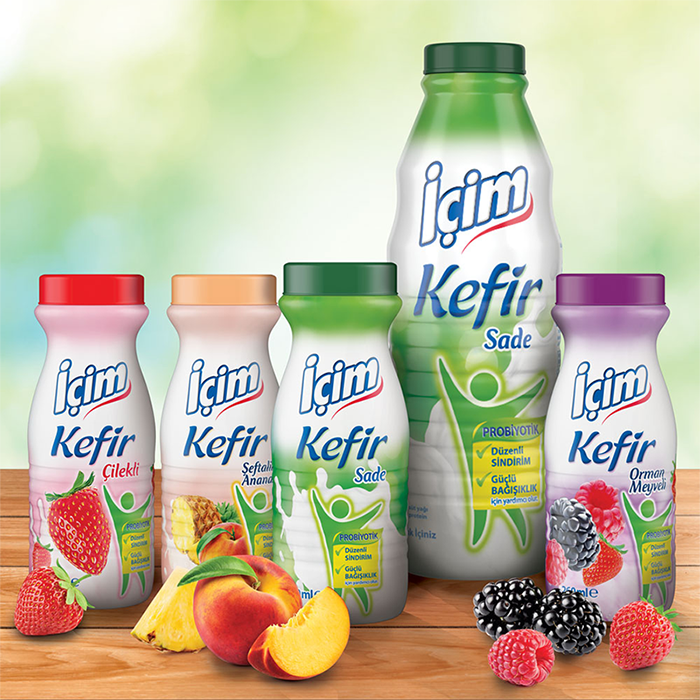Immunity-Friendly Miracle Beverage: Kefir
Seven Questions About Kefir
In these days when we take more care of our health as we enter winter, consuming ‘functional foods’ with a high probiotic content to help strengthen our immune system becomes important. Kefir, originating from the Caucasus, stands out with its probiotic content. Ekin Oruçoğlu, Food Engineer at Ak Gıda Production Department, shared the details about kefir, which is an indispensable part of a healthy diet. According to Ekin Oruçoğlu, kefir is a beverage that can be consumed as a snack or on an empty stomach in daily dietary routine. Oruçoğlu believes that kefir is an ideal nutritional supplement to strengthen the immune system.

1. What is Kefir?
Kefir, with a history of hundreds of years, is a dairy product originating from North Caucasus. It is a probiotic beverage obtained by fermenting milk using kefir grains or kefir cultures. Research conducted by experts from the Federal University of Rio de Janeiro has proven that kefir is a miraculous product containing many microorganisms that are beneficial to health and helps balance our “intestinal ecosystem.” According to the research results, kefir not only helps regulate the digestive system but also has effects on balancing high blood pressure, reducing allergic reactions, and lowering the risk of cancer.
2. What does Kefir contain?
Kefir contains kefir culture, kefir yeast, and probiotic microorganisms.
3. Does Kefir boost the immune system?
Kefir is a nutritious beverage rich in protein, calcium, vitamins, and minerals, making it beneficial for the immune system. A joint research conducted by scientists from Argentina and France revealed that the beneficial microorganisms naturally occurring in kefir during the fermentation process help activate the immune system and contribute to the prevention of various diseases, including rheumatoid arthritis and certain types of cancer.
4. Does Kefir have any effect on regulating the digestive system?
The probiotics in Kefir help regulate the digestive system. Additionally, clinical studies have shown that Kefir increases intestinal movements and can help alleviate constipation issues.

5. Who can consume kefir?
Due to its high nutritional value and health benefits, kefir is recommended for adults as well as children, pregnant women, patients, those in need of supportive treatment, and the elderly in their daily diet. While there are many studies demonstrating the benefits of kefir for children, it is advisable to consult a doctor before giving kefir to children under 3 years of age. Research has also shown that kefir can be a beneficial support for athletes due to its high protein content, vitamins, and minerals. Kefir stands out for its role in replenishing mineral deficiencies that can lead to health issues such as weakened immunity and muscle cramps, which athletes may occasionally experience.
6. What is the recommended daily consumption of kefir?
Kefir is a food that should be included in the daily diet due to its beneficial properties for health. The daily consumption amount can vary depending on individual needs but can be added to the diet in portions of 1-2 servings (1 serving = 250 ml).
7. When should kefir be consumed?
One of the best features of kefir is that it can be consumed at any time of the day, whether on an empty stomach or after a meal. Thanks to its high nutritional value, kefir can also be chosen as a snack throughout the day. Kefir should be stored in the refrigerator at +4°C and consumed within 3 days after opening.